
Ferrell Named Director of Schools at The Children’s Guild School of Prince George’s County
CHILLUM, MD, November 7, 2022 – The Children’s Guild celebrates today the appointment of Mr. James Ferrell as the new Director of Schools of The Children’s Guild School of Prince George’s County. The non-public special education day school, approved by the Maryland State Department of Education, serves boys and girls 5-21 years old who have emotional disabilities, autism, and multiple disabilities.
Jenny Livelli, President and CEO of The Children’s Guild, said, “Mr. Ferrell brings tremendous leadership, patience, and energy to this position. We’re confident he’ll individualized transformational experiences to ensure our students and families thrive. Our students and staff at The Children’s Guild School of Prince George’s County have an amazing role model guiding them to future success.”
patience, and energy to this position. We’re confident he’ll individualized transformational experiences to ensure our students and families thrive. Our students and staff at The Children’s Guild School of Prince George’s County have an amazing role model guiding them to future success.”
Mr. Ferrell worked in public and non-public education as a teacher, program coordinator, principal, and mentor during his 20 years of experience leading students throughout various Baltimore County, Baltimore City, and Anne Arundel County schools. Prior to accepting his new role at The Children’s Guild School of Prince George’s County, he was a teacher at Old Mill High School for two years where he taught US Government, Forensic Science, and Chemistry.
“I am honored and humbled to serve as the new Director of Schools. With my goal of continuing the tradition of excellence here at The Children’s Guild School of Prince George’s County, I am committed to always exploring new ways to meet the needs of all students and to more effectively communicate with parents and community members,” said Mr. Ferrell. “Parent and community involvement throughout the school year helps our staff identify specific goals in the areas of student achievement, school climate, and parent communication. We are committed to providing a community that is safe and conducive to learning. Together we can help our children excel and provide them with an education that is second to none,” he added.
The Children’s Guild School of Prince George’s County is part of The Children’s Guild’s schools and programs that respond to the unique needs of every child, family, and community it serves since 1953. The organization is one of the largest providers of charter schools, special education, autism services, treatment foster care, and family mental and behavioral health services in the region. Additional affiliates of The Children’s Guild include The Children’s Guild School of Baltimore, The Children’s Guild DC Public Charter School, Monarch Academy Annapolis, Monarch Academy Glen Burnie, Monarch Academy Global Academy Laurel, The Outpatient Mental Health Clinic, Treatment Foster Care, The Children’s Guild- Transformation Academy, Monarch Preschool College Park, TranZed Academy for Working Students (TAWS), and TranZed Apprenticeships. For more information, visit https://childrensguild.org/.
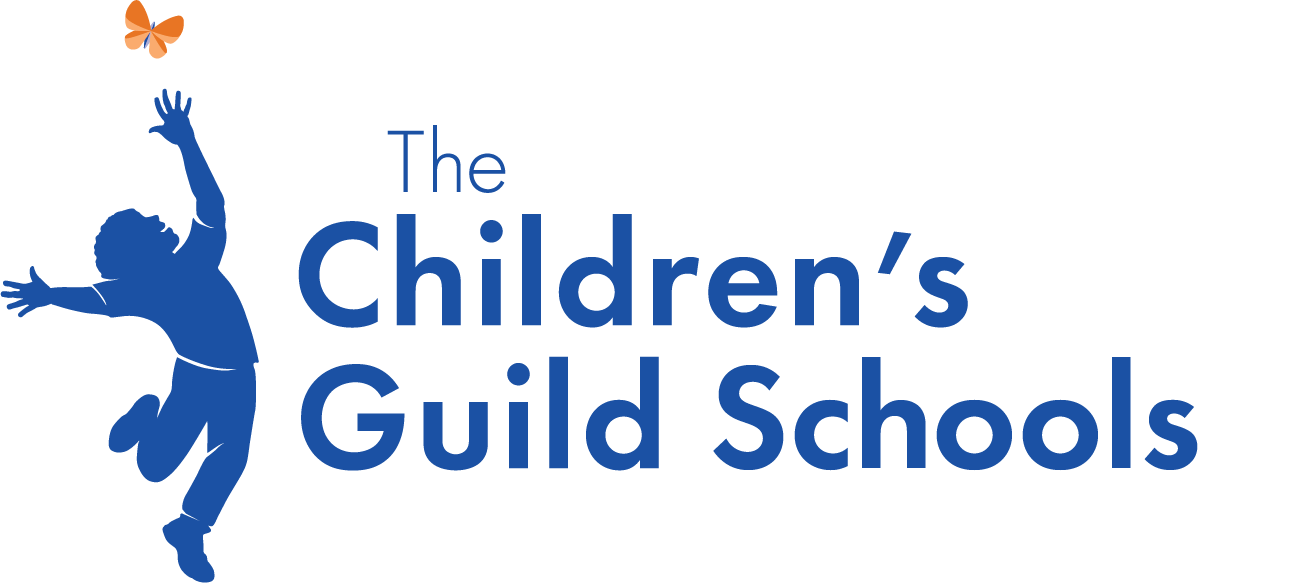
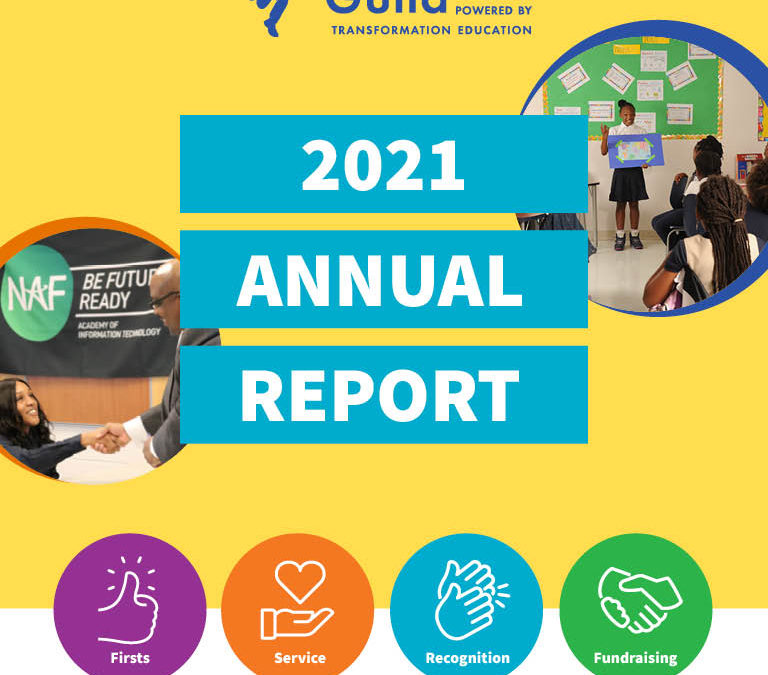
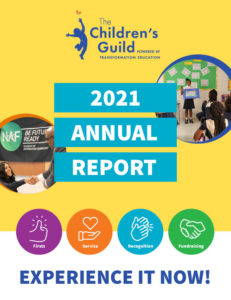 The firsts we achieved, the service we undertook, the recognition we earned, and the funds we raised to better serve communities made 2021 a year to remember for The Children’s Guild. Join us to reflect on an inspiring year by checking out our 2021 Annual Report.
The firsts we achieved, the service we undertook, the recognition we earned, and the funds we raised to better serve communities made 2021 a year to remember for The Children’s Guild. Join us to reflect on an inspiring year by checking out our 2021 Annual Report.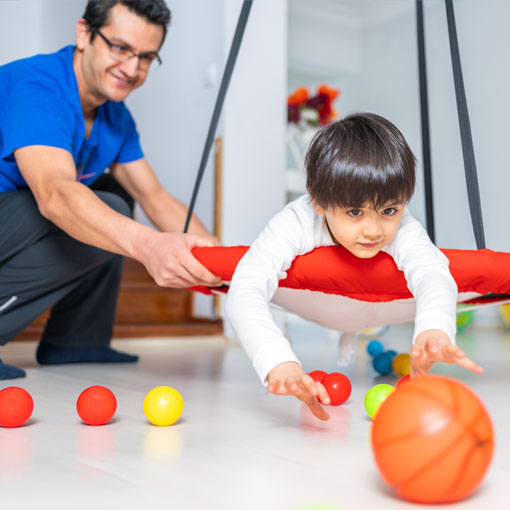

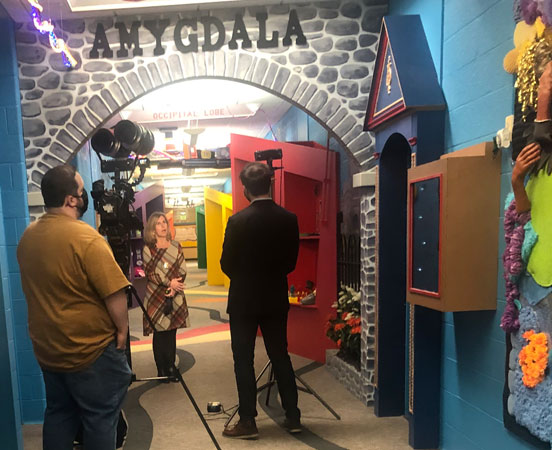
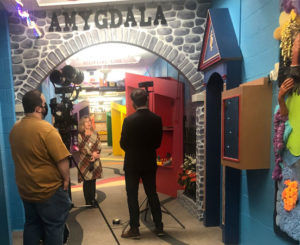 Baltimore’s WJZ featured on their evening news on March 3, 2021, “
Baltimore’s WJZ featured on their evening news on March 3, 2021, “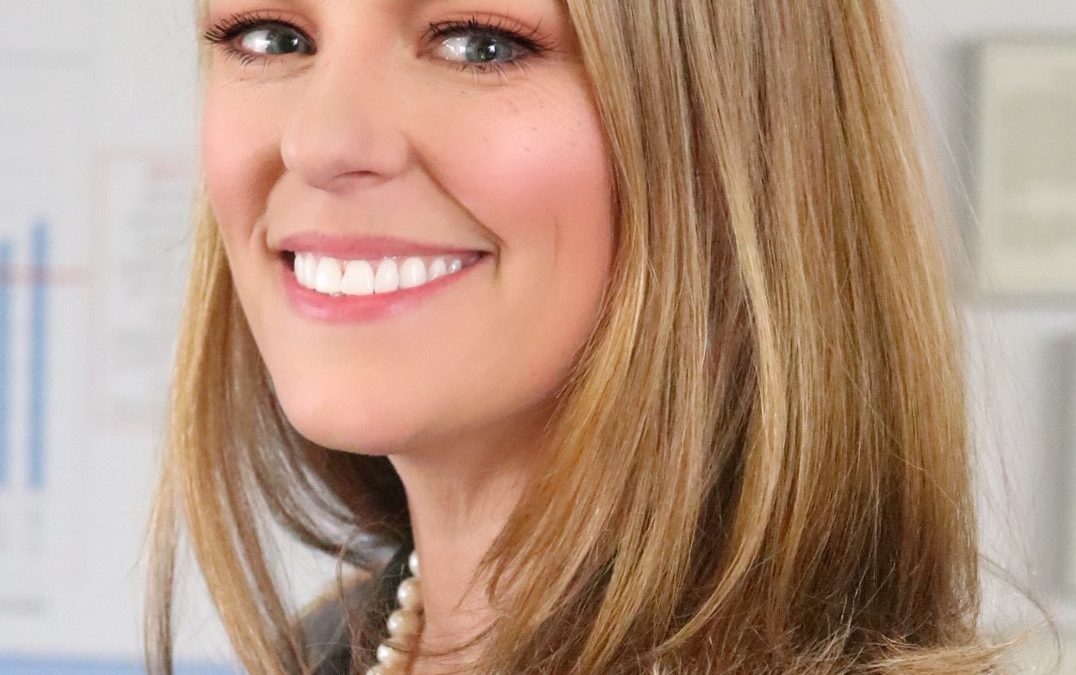
 The Children’s Guild Alliance named Jenny Livelli as president and CEO. Livelli brings more than two decades experience in education, human services and nonprofit leadership. She is the first new CEO of The Children’s Guild Alliance in 26 years and the first woman CEO in the $86-million organization’s 67-year history.
The Children’s Guild Alliance named Jenny Livelli as president and CEO. Livelli brings more than two decades experience in education, human services and nonprofit leadership. She is the first new CEO of The Children’s Guild Alliance in 26 years and the first woman CEO in the $86-million organization’s 67-year history.

